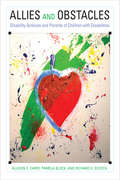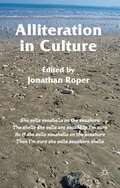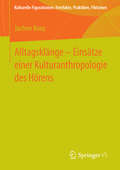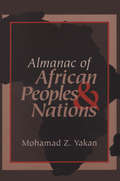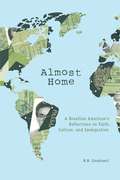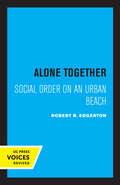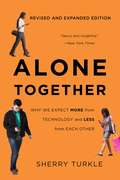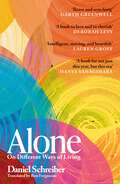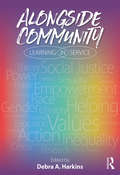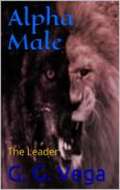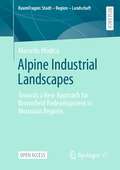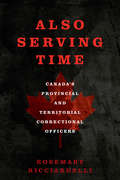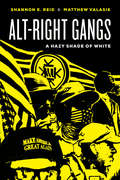- Table View
- List View
Allies and Italians under Occupation
by Isobel WilliamsUsing original documents, the Allied Occupation of southern Italy, particularly Sicily and Naples, is illustrated by examining crime and unrest by Allied soldiers, deserters, rogue troops and Italian civilians from drunkenness, theft, rape, and murder to riots, demonstrations, black marketeering and prostitution.
Allies and Obstacles: Disability Activism and Parents of Children with Disabilities
by Allison C. Carey Pamela Block Richard ScotchParents of children with disabilities often situate their activism as a means of improving the world for their child. However, some disabled activists perceive parental activism as working against the independence and dignity of people with disabilities. This thorny relationship is at the heart of the groundbreaking Allies and Obstacles. The authors chronicle parents’ path-breaking advocacy in arenas such as the right to education and to liberty via deinstitutionalization as well as how they engaged in legal and political advocacy. Allies and Obstacles provides a macro analysis of parent activism using a social movement perspective to reveal and analyze the complex—and often tense—relationship of parents to disability rights organizations and activism. The authors look at organizational and individual narratives using four case studies that focus on intellectual disability, psychiatric diagnoses, autism, and a broad range of physical disabilities including cerebral palsy and muscular dystrophy. These cases explore the specific ways in which activism developed among parents and people with disabilities, as well as the points of alliance and the key points of contestation. Ultimately, Allies and Obstacles develops new insights into disability activism, policy, and the family.
Alliteration in Culture
by Jonathan RoperAlliteration occurs in a wide variety of contexts in stress-initial languages, including Icelandic, Finnish and Mongolian. It can be found in English from Beowulf to The Sun . Nevertheless, alliteration remains an unexamined phenomenon. This pioneering volume takes alliteration as its central focus across a variety of languages and domains.
Alltag im urbanen Quartier: Eine ethnografische Studie zum städtischen Zusammenleben (Interkulturelle Studien)
by Nina BerdingNina Berding liefert eine dichte ethnografische Beschreibung von Alltagspraktiken in einem diversitätsgeprägten Quartier in Düsseldorf. Die Autorin beschreibt die routinierten Handlungen der Bewohner*innen im Alltag und zeigt, wie handlungsfähig Stadtgesellschaft im Umgang mit urbaner Vielfalt eigentlich ist. Sie stellt heraus, dass sich gesellschaftlich wirksame Integrationsparadigmen häufig nicht aus den gelebten Erfahrungen im urbanen Alltag heraus bilden, sondern durch hegemoniale Diskurse, die die intrinsische Balance des alltäglichen Zusammenlebens immer wieder ins Ungleichgewicht bringen.
Alltagsklänge - Einsätze einer Kulturanthropologie des Hörens (Kulturelle Figurationen: Artefakte, Praktiken, Fiktionen)
by Jochen BonzVon der Frage geleitet, wie die Gegenwartskulturforschung aus der Berücksichtigung klanglicher Phänomene Erkenntnisgewinne ziehen kann, verknüpft die Studie Überlegungen aus Popkultur- und Soundscape-Forschung, Empirischer Kulturwissenschaft, Musikethnologie, Kulturtheorie und Medienwissenschaft zu einem kulturanthropologischen Forschungsansatz. Sie nähert sich ihren Phänomenen interpretativ und erprobt ein begriffliches Instrumentarium, das die subjektivierenden Effekte klanglicher Medialität benennbar macht. Auf diese Weise entwirft die Studie eine Vorstellung vom Forschungsstand kulturwissenschaftlich orientierter Sound Studies und ihren Möglichkeiten.
Alltägliche Bewältigungs- und Widerstandspraktiken Schwarzer Menschen in Deutschland, Frankreich und Kanada: Eine anerkennungstheoretische Studie (Frankfurter Beiträge zur Soziologie und Sozialpsychologie)
by Annette HilscherIn diesem Buch wird die Fragestellung untersucht, inwiefern Schwarze Menschen soziale Missachtung erfahren und welche Bewältigungs- und Widerstandspraktiken sie dabei entwickeln. Die Studie wurde in Deutschland, Frankreich und Kanada durchgeführt, drei Rechtsstaaten im Globalen Norden. Die der Untersuchung zugrundeliegende Vorannahme bestand darin, dass sich Missachtungserfahrungen Schwarzer Menschen von Land zu Land unterscheiden sowie in Abhängigkeit von den jeweiligen politischen Normen zu verstehen sind, welche ihren Ausdruck unter anderem in der aktuellen Gesetzgebung zu Antidiskriminierung und Gleichbehandlung finden. Die Studie arbeitet mit der Theorie der Anerkennung nach Axel Honneth. Diskriminierungserfahrungen werden im Anschluss an diese Theorie als Erfahrungen sozialer Missachtung verstanden. Diesem Verständnis nach ist die Missachtung nicht möglich, ohne zuvor gesehen zu werden – jedoch nicht adäquat gemäß den durch gelungene Sozialisation erworbenen normierten Regelnsozialer Interaktion, sondern als „Wahrnehmungsdeformation“. Missachtung wird folglich als negative Form der Anerkennung verstanden. Den Kern der Arbeit bildet eine eigene empirische Studie, die auf einer Reihe ausführlicher Gruppendiskussionen und biographisch-narrativer Interviews mit Schwarzen Menschen basiert.
Almanac of African Peoples and Nations
by Mohamad Z. YakanThe peoples of Africa are neither ethnically, culturally, nor religiously homogeneous. European colonial powers took little note of this reality in carving up the continent, a fact reflected in the periodic outbreak of civil war since decolonialization. Likewise, Western European models of development, whether in their liberal or Marxist manifestations, have so far failed to meet African development needs. The path to stability in Africa is through its people's character and goals. Almanac of African Peoples and Nations provides an essential guide to the major ethnic groups of the African continent, highlighting the major contributions and basic features of each.The Almanac reviews Africa's language families and their respective national and geographic concentrations, explaining ethnic classification based on linguistic difference and including language groups that are not indigenous to Africa. The major African peoples are then listed by country with a statistical breakdown on their respective shares in the total population of each country and maps indicating their concentration. The major section of the volume includes a comprehensive listing and descriptive profile of each ethnic, national, and tribal group detailing their history, customs, economic systems, and political and social organizations. The Almanac points out as well which groups support revisionist political aspirations and shows the internal and external pressures they are subject to. Yakan notes that African societies are not highly integrated and must support multitudes of influential sub-cultures with conflicting agendas and loyalties. Arguing that tribalism reflects Africa's historical experience and cultural heritage, he sees the resolution of the continent's problems in consociational democracy, proportional representation, federalism, or some form of autonomous rule.
Almost All About Unit Roots
by In ChoiMany economic theories depend on the presence or absence of a unit root for their validity, and econometric and statistical theory undergo considerable changes when unit roots are present. Thus, knowledge on unit roots has become so important, necessitating an extensive, compact, and nontechnical book on this subject. This book is rested on this motivation and introduces the literature on unit roots in a comprehensive manner to both empirical and theoretical researchers in economics and other areas. By providing a clear, complete, and critical discussion of unit root literature, In Choi covers a wide range of topics, including uniform confidence interval construction, unit root tests allowing structural breaks, mildly explosive processes, exuberance testing, fractionally integrated processes, seasonal unit roots and panel unit root testing. Extensive, up to date, and readily accessible, this book is a comprehensive reference source on unit roots for both students and applied workers.
Almost Home: A Brazilian Americans Reflections on Faith, Culture, and Immigration
by H. B. CavalcantiIn Almost Home, H. B. Cavalcanti, a Brazilian-born scholar who has spent three decades working and living in the United States, reflects on his life as an immigrant and places his story within the context of the larger history of immigration. Due to both his family background and the prevalence of U.S. media in Latin America, Cavalcanti already felt immersed in U.S. culture before arriving in Kentucky in 1981 to complete graduate studies. At that time, opportunities for advancement in the United States exceeded those in Brazil, and in an era of military dictatorships throughout much of Latin America, Cavalcanti sought in the United States a nation of laws. In this memoir, he reflects on the dynamics of acculturation, immigrant parenting, interactions with native-born U.S. citizens, and the costs involved in rejecting his country of birth for an adopted nation. He also touches on many of the factors that contribute to migration in both the “sending” and “receiving” countries and explores the contemporary phenomenon of accelerated immigration. With its blend of personal anecdotes and scholarly information, Almost Home addresses both individual and policy-related issues to provide a moving portrait of the impact of migration on those who, like Cavalcanti, confront both the wonder and the disorientation inherent in the immigrant experience.
Alone Together: How Marriage In America Is Changing
by Alan Booth David R. Johnson Paul R. Amato Stacy J. RogersMost observers agree that marriage in America has been changing. Some think it is in decline, that the growth of individualism has made it increasingly difficult to achieve satisfying and stable relationships. Others believe that changes, such as increasing gender equality, have made marriage a better arrangement for men as well as women. Based on two studies of marital quality in America twenty years apart, this book takes a middle view, showing that while the divorce rate has leveled off, spouses are spending less time together--people may be "bowling alone" these days, but married couples are also eating alone. Indeed, the declining social capital of married couples--including the fact that couples have fewer shared friends--combined with the general erosion of community ties in American society has had pervasive, negative effects on marital quality. At the same time, family income has increased, decision-making equality between husbands and wives is greater, marital conflict and violence have declined, and the norm of lifelong marriage enjoys greater support than ever. The authors conclude that marriage is an adaptable institution, and in accommodating the vast changes that have occurred in society over the recent past, it has become a less cohesive, yet less confining arrangement.
Alone Together: How Marriage in America Is Changing
by Alan Booth David R. Johnson Paul R. Amato Stacy J. RogersBased on two studies of marital quality in America twenty years apart, Alone Together shows that while the divorce rate has leveled off, spouses are spending less time together. The authors argue that marriage is an adaptable institution, and in accommodating the changes that have occurred in society, it has become a less cohesive, yet less confining arrangement.
Alone Together: Social Order on an Urban Beach
by Robert B. EdgertonThis title is part of UC Press's Voices Revived program, which commemorates University of California Press’s mission to seek out and cultivate the brightest minds and give them voice, reach, and impact. Drawing on a backlist dating to 1893, Voices Revived makes high-quality, peer-reviewed scholarship accessible once again using print-on-demand technology. This title was originally published in 1979.
Alone Together: Why We Expect More from Technology and Less from Each Other
by Sherry TurkleConsider Facebook—it’s human contact, only easier to engage with and easier to avoid. Developing technology promises closeness. Sometimes it delivers, but much of our modern life leaves us less connected with people and more connected to simulations of them.In Alone Together, MIT technology and society professor Sherry Turkle explores the power of our new tools and toys to dramatically alter our social lives. It’s a nuanced exploration of what we are looking for—and sacrificing—in a world of electronic companions and social networking tools, and an argument that, despite the hand-waving of today’s self-described prophets of the future, it will be the next generation who will chart the path between isolation and connectivity.
Alone Together: Why We Expect More from Technology and Less from Each Other
by Sherry TurkleConsider Facebook--it's human contact, only easier to engage with and easier to avoid. Developing technology promises closeness. Sometimes it delivers, but much of our modern life leaves us less connected with people and more connected to simulations of them. In Alone Together, MIT technology and society professor Sherry Turkle explores the power of our new tools and toys to dramatically alter our social lives. It's a nuanced exploration of what we are looking for--and sacrificing--in a world of electronic companions and social networking tools, and an argument that, despite the hand-waving of today's self-described prophets of the future, it will be the next generation who will chart the path between isolation and connectivity.
Alone: On different ways of living
by Daniel Schreiber'A book to love and cherish'Deborah Levy, author of The Cost of Living'A beautiful writer and, just as important, a beautiful thinker'Hanya Yanagihara, author of A Little Life 'Friendship is, in fact, as much the topic of this book as aloneness'Sarah Bakewell, GuardianAt no time before have so many people lived alone, and never has loneliness been so widely or keenly felt. Why, in a society of individualists, is living alone perceived as a shameful failure? And can we ever be happy on our own?'A heartfelt memoir on being single, living alone and the existential experience of loneliness'Financial Times'Romantic love, suggests the author, is the lone "grand narrative" to have survived seismic societal shifts in modern times . . . Hermits and intimacy, the taboo of loneliness and the consolation of friendship - all find their place in a meditation that nods to joy and adversity'Observer
Alone: On different ways of living
by Daniel Schreiber'A book to love and cherish'Deborah Levy, author of The Cost of Living'A beautiful writer and, just as important, a beautiful thinker'Hanya Yanagihara, author of A Little Life 'Friendship is, in fact, as much the topic of this book as aloneness'Sarah Bakewell, GuardianAt no time before have so many people lived alone, and never has loneliness been so widely or keenly felt. Why, in a society of individualists, is living alone perceived as a shameful failure? And can we ever be happy on our own?'A heartfelt memoir on being single, living alone and the existential experience of loneliness'Financial Times'Romantic love, suggests the author, is the lone "grand narrative" to have survived seismic societal shifts in modern times . . . Hermits and intimacy, the taboo of loneliness and the consolation of friendship - all find their place in a meditation that nods to joy and adversity'Observer
Alongside Community: Learning in Service
by Debra A. HarkinsAlongside Community is a step-by-step guide that prepares social science students to be democratic citizens by examining the theory, method, and sociopolitical dynamics that impact helping those different from oneself. The first part of this book explores the more theoretical issues of helping others, including issues of social identity, values, and power. The second part of this guidebook examines action-based methods; interventions available for community-based engagement; and the sociopolitical issues that inevitably arise for those who strive to create social change including issues of race, ethnicity, social class, gender, sexual orientation, mental health, educational and environmental justice along with suggestions on how to address these issues. The third part of Alongside Community critically explores how to measure the impact of community service on major stakeholders including student, faculty, college and community agency and ends with reflections and suggestions on how to be a lifelong civically engaged citizen.
Alpha God: The Psychology of Religious Violence and Oppression
by Hector A. GarciaThis book uses evolutionary psychology as a lens to explain religious violence and oppression. The author, a clinical psychologist, examines religious scriptures, rituals, and canon law, highlighting the many ways in which our evolutionary legacy has shaped the development of religion and continues to profoundly influence its expression. The book focuses on the image of God as the dominant male in Judaism, Christianity, and Islam. This traditional God concept is seen as a reflection of the "dominant ape" paradigm so evident in the hierarchical social structures of primates, with whom we have a strong genetic connection. The author describes the main features of male-dominated primate social hierarchies- specifically, the role of the alpha male as the protector of the group; his sexual dominance and use of violence and oppression to attain food, females, and territory; in-group altruism vs. out-group hostility (us vs. them); and displays of dominance and submission to establish roles within the social hierarchy. The parallels between these features of primate society and human religious rituals and concepts make it clear that religion, especially its oppressive and violent tendencies, is rooted in the deep evolutionary past. This incisive analysis goes a long way toward explaining the historic and ongoing violence committed in the name of religion.
Alpha Male
by Guido Galeano Vega Victor Hugo Susavila CampoAlpha Male, The Leader. This concept is furthermore applied, within the nature or the animal social system. In modern societies, it is also applied to define, certain types of people, which are characterized by their leadership ability.
Alpine Industrial Landscapes: Towards a New Approach for Brownfield Redevelopment in Mountain Regions (RaumFragen: Stadt – Region – Landschaft)
by Marcello ModicaThis Open Access book presents a pioneering research on brownfield redevelopment in mountain regions, and specifically in the European Alps. The origins and causes, the actual conditions as well as the future challenges and potentials of mountain brownfields are investigated from an interdisciplinary yet landscape-centered perspective. Through the reasoned combination of research-by-design methods and case-study analysis, the book explores the infrastructural relevance of these sites for the specific mountain territory, while advancing an innovative structuralist-systemic approach for their physical and functional transformation. The book includes, among others, a first transnational geo-mapping of Alpine brownfields, whose impressive outcomes in terms of site numbers and distribution can only confirm the urgency of this research.
Alpine Landgesellschaften zwischen Urbanisierung und Globalisierung
by Erwin Schmid Manuela LarcherDieses Open-Access-Buch bietet Einblicke in die Bandbreite agrar- und regional-soziologischer Forschung und eng verwandter Disziplinen in Österreich. Es widmet sich den vielfältigen Lebensrealitäten von Akteurinnen und Akteuren in ländlichen, insbesondere alpinen Regionen. Die Beiträge beleuchten Themen wie Wandlungsprozesse und Zukunftsperspektiven, Sozialkapital und Lebensqualität, Werthaltungen und Konsumpräferenzen sowie Landnutzung und Familienlandwirtschaft.
Als Gleicher unter Verschiedenen?: Diskriminierung evolutionspsychologisch
by Lydia LangeWarum fallen Menschen in alte, zerstörerische Verhaltensmuster zurück? Wegen schlechten Charakters oder einer schlimmen Kindheit? Wenn wir die evolutionär geformte Natur des Menschen berücksichtigen, erkennen wir Möglichkeiten zur Kooperation und zu regelhaft gestalteter Konkurrenz.Soziale Diskriminierung als Begleiterscheinung der kulturellen Evolution kann kooperatives Verhalten untergraben. Konkurrenz als unverzichtbarer Bestandteil für den Prozess der Evolution muss dem gegenüber nicht notwendig in Feindschaft und Aggression münden, sondern kann menschengemachten Regeln folgen. Dieses Buch versucht zu zeigen, Ansatzpunkte in der frühen Phylogenese zu suchen und nicht zu große Hoffnungen auf unsere neuesten kultur-evolutionären Errungenschaften (gesinnungsethische Empfehlungen, Antidiskriminierungsgesetze, Änderung sprachlicher Symbole) zu setzen. Wenn die evolutionär geformte Natur des Menschen berücksichtigt wird, erkennen wir Möglichkeiten zur Kooperation und zu regelhaft gestalteter Konkurrenz. Dies wiederum kann helfen, dass evolutionspsychologische Erkenntnisse zur Vermeidung oder Verminderung sozialer Diskriminierung beitragen können.
Also Serving Time: Canada’s Provincial and Territorial Correctional Officers (G - Reference, Information And Interdisciplinary Subjects Ser.)
by Rosemary RicciardelliAlso Serving Time informs readers about the realities of provincial and territorial prison work in Canada. Exploring the nuances of the job, Rosemary Ricciardelli shows how officer orientations and attitudes toward prisoners are interconnected and foundational in shaping their prison experiences as well as that of those in custody and in managerial and administrative positions. Drawing on interviews with 100 correctional officers from a range of provincial prisons and with experience working in territorial prisons, Ricciardelli provides theoretical and applied explorations of officer orientations, interpretations, and risk propensity to show how perceptions, attitudes, and beliefs—both at the individual and structural levels—shape prison practices. Also Serving Time unpacks how gender informs the actions and self-presentation of correctional officers and informs readers about the officers’ experiences when working with male and female adult prison populations. Ricciardelli confirms that tasks of daily living underpinned by pervasive risk potential shape prison work. Through the officer accounts presented, she provides an opportunity for readers to explore how punishment and ‘rehabilitation’, gender, and the hierarchical structure of prison management shape officers’ daily realities.
Alt-Right Gangs: A Hazy Shade of White
by Shannon E. Reid Matthew ValasikAlt-Right Gangs provides a timely and necessary discussion of youth-oriented groups within the white power movement. Focusing on how these groups fit into the current research on street gangs, Shannon E. Reid and Matthew Valasik catalog the myths and realities around alt-right gangs and their members; illustrate how they use music, social media, space, and violence; and document the risk factors for joining an alt-right gang, as well as the mechanisms for leaving. By presenting a way to understand the growth, influence, and everyday operations of these groups, Alt-Right Gangs informs students, researchers, law enforcement members, and policy makers on this complex subject. Most significantly, the authors offer an extensively evaluated set of prevention and intervention strategies that can be incorporated into existing anti-gang initiatives. With a clear, coherent point of view, this book offers a contemporary synthesis that will appeal to students and scholars alike.
Alter (Alter(n) und Gesellschaft)
by Ludwig Amrhein Gertrud M. Backes Anne Harjes Christopher NajorkIm Zentrum des qualitativen Forschungsprojekts steht die Frage, welche Bilder vom Alter und Altern in der Schule vorherrschen und dort vermittelt werden. Dazu wurden Lehrpläne und Schul- und Lesebücher der Primarstufe und der Sekundarstufe I inhaltsanalytisch untersucht sowie Schüler(innen) der zweiten und neunten Klasse und deren Lehrer(innen) befragt. Das Projekt gibt Hinweise darauf, welche schulischen Alter(n)sbilder und Alter(n)sdiskurse in den verschiedenen Schulformen der alten und neuen Bundesländer vermittelt werden und welche Alter(n)sbilder die Schüler(innen) und Lehrkräfte selbst haben. Auf Grundlage der gewonnenen Ergebnisse wurden die Ansätze zu einer differenzierteren Berücksichtigung von Alter(n)sbildern im Schulunterricht mit Vertreter(inne)n der schulischen Praxis diskutiert und entsprechende Anregungen erarbeitet.

